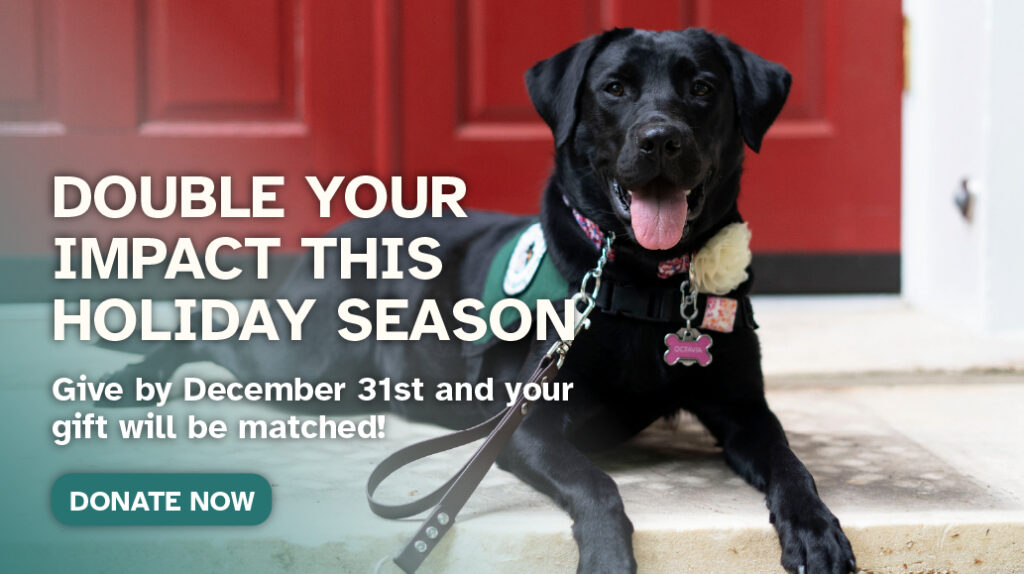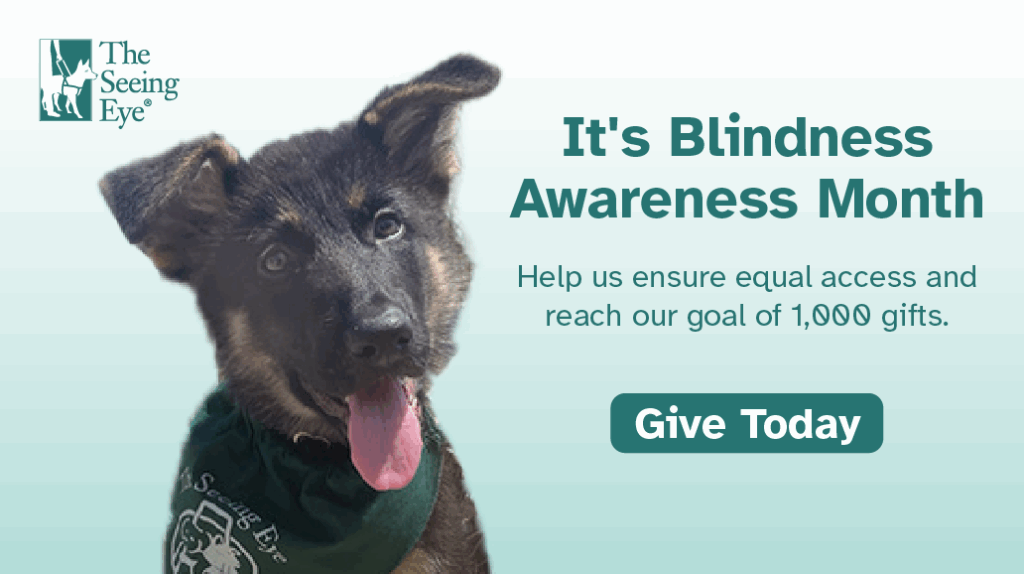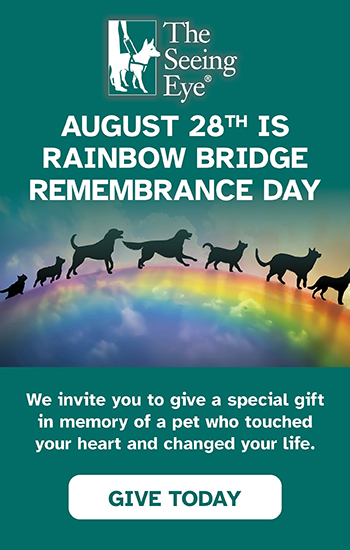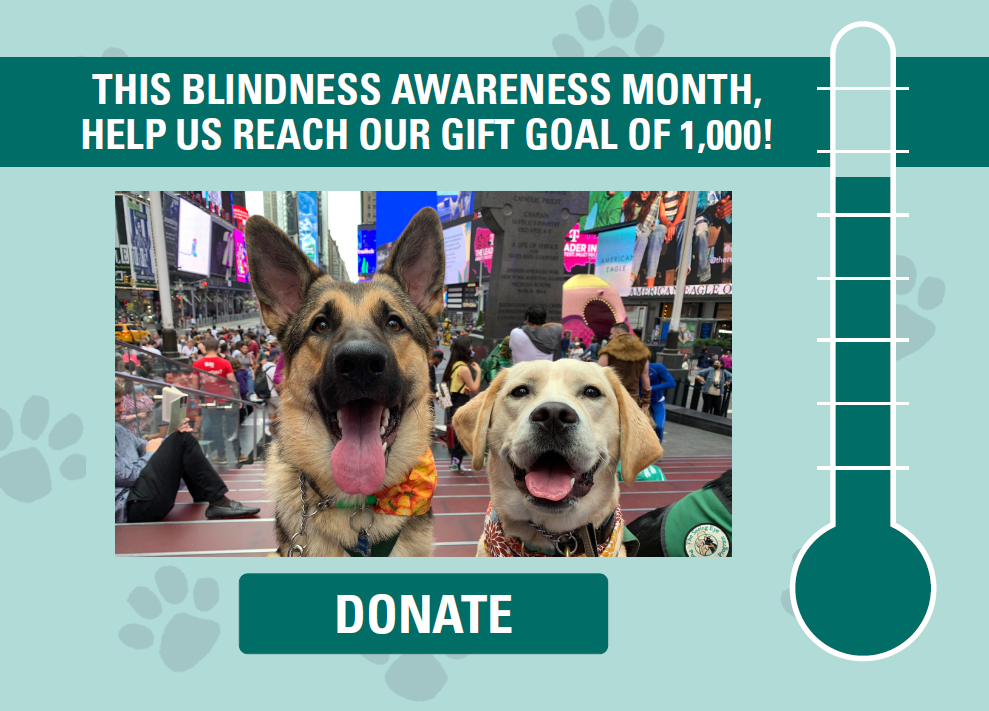Access & Advocacy
Employment
Guide Dogs in the Workplace
Title I of the Americans with Disabilities Act (ADA) applies to all private employers with 15 or more employees as well as to state and local government employers. Section 504 of the Rehabilitation Act provides similar protections for federal employment. In addition, most state laws prohibit employment discrimination and may provide protections greater than or in addition to those available under Federal laws.
When an employee requests to use a service animal as a reasonable accommodation in the work place, the employer has the right to request documentation or demonstration of the need for the animal, that the animal is trained, and that the animal will not disrupt the workplace. The Seeing Eye will readily provide its graduates with the appropriate documentation upon request.
Employers should be very cautious about denying a request to use a service animal at work as a reasonable accommodation on the grounds that another accommodation would be equally effective. Service animals help with medical issues and can provide support that other accommodations cannot and employers should not be involved in an employee’s personal medical decisions. For example, working with a guide dog could provide an employee with a level of independence, confidence, and a sense of security that no other accommodation could provide for that particular individual. Employers should also be very careful about asking for proof that a service animal has received health vaccinations or treatment for worms or fleas if there is no indication that any problems exist with the dog’s health.
It is important to remember that people working with service animals, including guide dog handlers, do not automatically have the right to bring their dog to an interview unless they are attending a job fair that is open to the public. Check out our Public Access page for more information about the rights of guide dog handlers in places that are open to the general public. If a guide dog handler has a private interview, the handler must request to bring the dog to the interview as a reasonable accommodation. However, if an applicant with a guide dog arrives at an interview accompanied by the dog, it may be best for the employer to conduct the interview and focus on the applicant’s qualifications instead of the applicant’s disability or the guide dog. Check out this helpful article about taking a service animal to a job interview.
There may be times when employers are faced with difficult issues when the accommodation needs of one employee interfere with the accommodation needs of another employee. One such situation occurs when an employee is allergic to a service animal used by another employee. Check out these accommodation ideas for allergies in the workplace.
The employee is responsible for the care and supervision of the guide dog including making sure the animal is not disruptive, keeping it clean and free of parasites, and taking it out to relieve itself as needed.
Check out The Seeing Eye’s tips for guide dogs in the workplace
Guide dogs should be included in workplace emergency preparedness plans.
For free one-on-one guidance on workplace accommodations and service animals, contact The Job Accommodation Network at (800) 526- 7234. Employees who believe that they have been discriminated against at work because of their disability can file a complaint with the U.S. Equal Employment Opportunity Commission or with their state’s Fair Employment Practices Agency.











